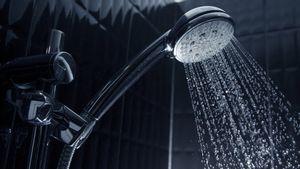JAKARTA - Anxiety is a normal reaction to stress. But when your teen seems to be struggling with their anxiety, it could be a sign that they have an anxiety disorder.
According to the National Institute of Mental Health, launched by Psycom, Saturday, March 26, about 25 percent of children aged 13 to 18 years have an anxiety disorder and just under 6 percent have uncontrolled anxiety disorder.
Given that teens go through a wide variety of physical and emotional changes as they grow, anxiety disorders can be difficult to identify. For that, for parents, try to pay attention to these hidden signs of anxiety in your teenager;
Emotional changesWhile some anxious teens express feelings of widespread worry, others experience subtle emotional changes such as:
Feeling "locked in" Easily angry Difficulty concentrating Restless Explosive Social changeAnxiety can have a negative impact on friendships. If your once sociable teen suddenly avoids his favorite activities or stops making plans with friends, you need to be suspicious. Adolescents who experience anxiety disorders tend to do;
Avoiding social interactions with regular friends Avoiding extracurricular activities Isolating oneself from peer groups Spending more time alone Physical changesMany physical complaints that can occur when a teenager has an anxiety disorder. Pay attention if the child conveys psychosomatic complaints such as;
Frequent headaches, including migraines Gastrointestinal problems Unexplained aches and pains Excessive tiredness Complaints of feeling unwell for no apparent medical cause Changes in eating habits Sleep disturbanceThe American Academy of Pediatrics recommends teens ages 13 to 18 get 8 to 10 hours of regular sleep to promote optimal health. Pediatricians also recommend turning off screens 30 minutes before bedtime and keeping all electronics out of the bedroom.
It's no big secret that the demands of homework, changes in brain structure, extracurricular activities, and screen time can all cut into teens' sleep habits. Therefore, it is difficult to know whether fatigue is caused by anxiety or due to a busy schedule. Watch for the red flags on this teenager;
Difficulty sleeping Too much sleep Frequent nightmares Not feeling refreshed when you wake up Poor performance at school
Poor performance at schoolGiven that anxiety can affect everything from sleep habits to skipping school due to physical problems, it's not surprising that poor academic performance can also result from untreated anxiety.
Absence from school, missed days due to anxiety-related illnesses, and constant worry can make it difficult for teens to keep up with school activities. Parents need to observe these changes in their children;
Significant jumps in grades (usually down) Frequently missed tasks Frequently overwhelmed by assignments Procrastinates or has trouble concentrating on homework Experiencing panic attack symptomsNot all adolescents with anxiety disorders experience panic attacks. However, there are also those who experience mild panic symptoms without experiencing a full-blown panic attack. The following symptoms are common among people with anxiety disorders, such as;
Fast heart rate Sweating and shaking Dizziness Stomach pain Difficulty breathing Chest pain Feeling like dying Feeling going crazy Numbness or tingling in arms and legs Derealization.If your teen seems to be struggling with anxiety that interferes with school, friendships, family relationships, or other activities of daily functioning, it's important to get an evaluation from a mental health practitioner. Anxiety is treatable, and most teens can learn to cope and manage their anxiety independently.
The English, Chinese, Japanese, Arabic, and French versions are automatically generated by the AI. So there may still be inaccuracies in translating, please always see Indonesian as our main language. (system supported by DigitalSiber.id)













